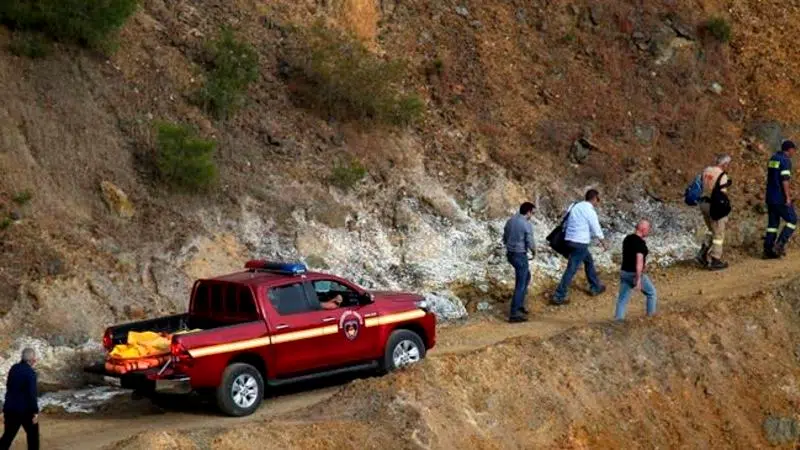
Police find body in Cyprus lake, tie rape to serial killings
NICOSIA, Cyprus — Police in Cyprus recovered a second suitcase containing human remains Sunday from a contaminated lake where a military officer who confessed to killing seven foreign women and girls told authorities he dumped the bodies of three victims.
The lake is part of an abandoned copper pyrite mine where a woman’s body was found by chance last month in a flooded shaft, setting off an investigation that police say led to the island nation’s first known serial killer.
The 35-year-old army captain told investigators he killed five women and two girls, and disposed of three bodies — those of a Filipino woman and a Romanian mother and daughter — in the man-made lake. A suitcase with the remains of a woman was found at the bottom a week ago.
